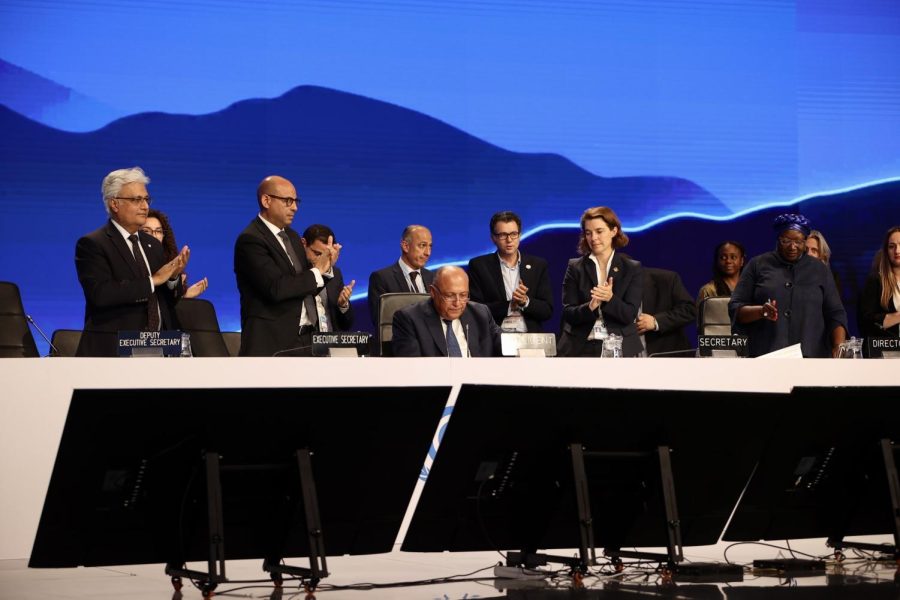American Commitment is Needed to Fight Climate Change
At the 27th U.N. Climate Conference (COP27) in Egypt this November, the United States faced scrutiny for not following in the footsteps of countries like Scotland, Germany and Belgium, who committed various amounts of money to fighting climate change. Instead, in the days following, the Biden administration unveiled a multifaceted plan to “[tackle] climate change,” which involves “bolstering climate resilience” and “engaging all of society in the climate crisis.” His announcement is a sincere declaration that the United States is dedicated to financially supporting the fight against climate change.
European countries have shown up to so-called climate fights in more ways than one. For many of these states, they are on the front lines, battling the effects of climate change alongside nearby developing countries, who have fallen victim to the ricochet. However, given America’s tumultuous political climate, climate change issues have become partisan and political. This politicization makes it tremendously difficult to enact real, positive change for those who need the most aid.
Thankfully, the Biden administration heeded advice from its European allies and pledged a series of grants to various different funds and organizations across the globe, including $100 million to the Adaptation Fund — an NGO dedicated to climate resiliency — as well as roughly $28.6 million to the development of early-warning systems in Africa. This is a fantastic start to what many believed would be a terrible let-down from the United States, with the administration facing pressure from what was then a fast-approaching midterm election alleging a “red wave” on the horizon.
Climate change has been on the forefront of most countries’ minds for a while and for a good reason. In 2021, Congress introduced a bill which would enable the president to declare a climate emergency. Many countries across the world, including Spain, Portugal, Canada and Argentina have declared climate emergencies, which is defined as “[an acknowledgment] that humanity is in a climate emergency,” a term used to describe the threat of global warming and climate change.
Truthfully, the United States is far behind in the worldwide efforts to combat climate change. As the “greatest country in the world,” there is a certain expectation to lead the way so others may follow. It is disappointing that the United States has failed to declare a climate emergency, or even pass legislation making that declaration a possibility, all because the ever-so-extreme conservative party has made it their mission to slander any attempt at doing so.
I believe America is making the right decision by aiding its European neighbors and developing countries who have been experiencing the brunt of climate change. The Biden administration has made it clear that climate change is at the top of their agenda, despite naysayers from Capitol Hill trying to contest science. Since there is a lack of a unified front against climate change in the United States, I think it is easy for distrust to breed from across the Atlantic, with many international leaders disapproving of the United States’ historically noncommittal approach. After all, former President Donald Trump withdrew from the longstanding Paris Agreement just a few years ago, which was ultimately a slap in the face to every country who had worked with the United States to create something fruitful and mutually beneficial.
It remains to be seen if Biden’s words will spur concrete action. The financial contributions he has committed will undoubtedly help those in need, but more needs to be done to fill the gaps where the United States has floundered in the past. Ultimately, if the United States wants to maintain its hegemony and keep its edge over global competitor China, it’s going to have to earn its keep by leading the pack in the fight against climate change and global warming.
Samantha Minear, FCRH ’24, is an international studies and communications major from Long Branch, N.J.

Samantha “Sam” Minear is a senior from Long Branch, N. J., majoring in international studies and communications. She started as a contributing writer...













































































































































































































